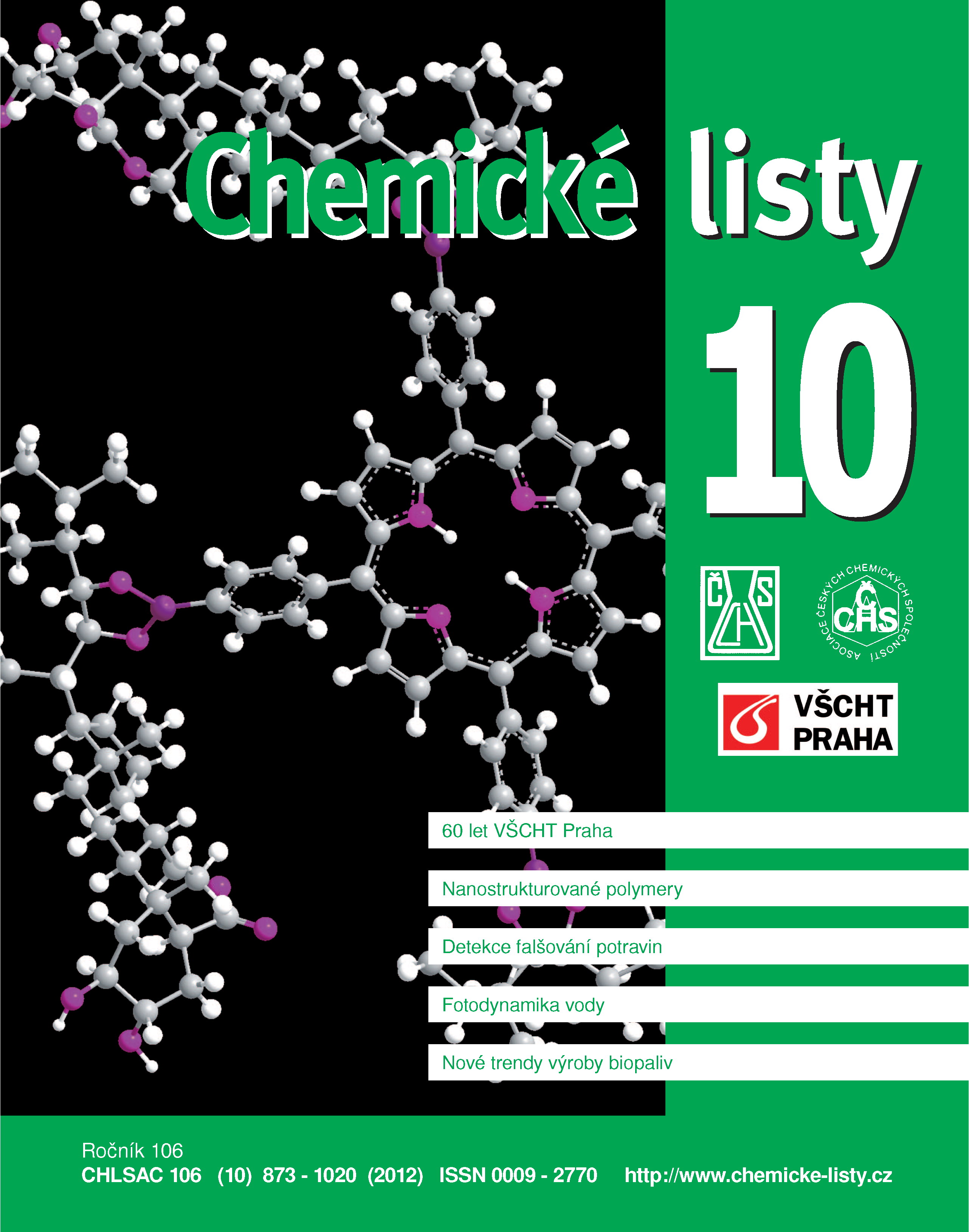Příprava tenkých vrstev polypyrrolu metodou matricové pulsní laserové depozice
Klíčová slova:
matricová pulsní laserová depozice, tenké vrstvy polypyrrolu, stanovení ablačního prahu, FTIR spektra polypyrroluAbstrakt
The increasing application of conductive polymers in electronics requires a precise and controlled deposition of these materials in thin layers. The article provides a brief description of the method, the principle and properties of both the source polymer and the matrix; also the experimental conditions necessary for successful thin layer preparation are presented. Matrix-assisted pulsed laser evaporation of polypyrrole was carried out at different laser fluences (0.1–0.6 J cm–2) with KrF excimer laser (λ = 248 nm) from water and dimethyl sulfoxide matrices – and also with Nd:YAG laser (λ = 266 nm) for comparison. The layer thickness was hundreds of nanometers. The relations of the laser wavelength, laser fluence and the used matrix on the one hand and chemical composition of the layers (analyzed by FTIR) on the other were studied. The ablation threshold was 0.25–0.30 J cm–2 for dimethyl sulfoxide matrix.





